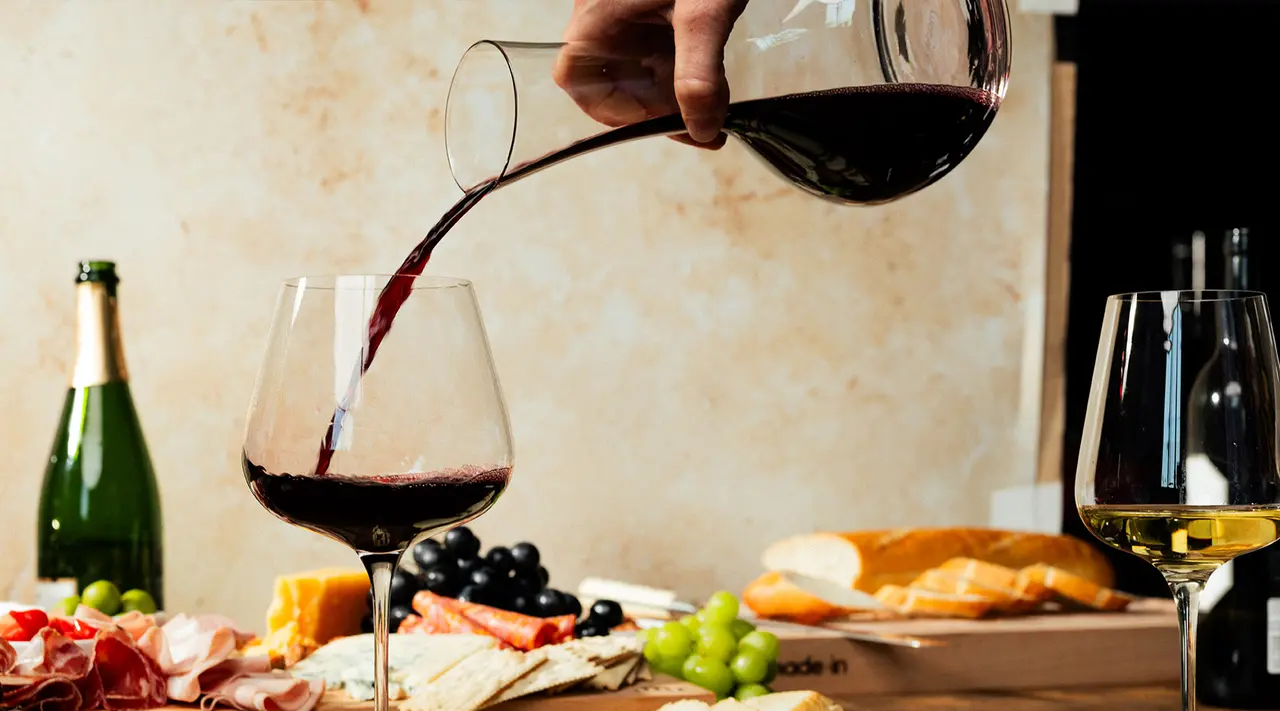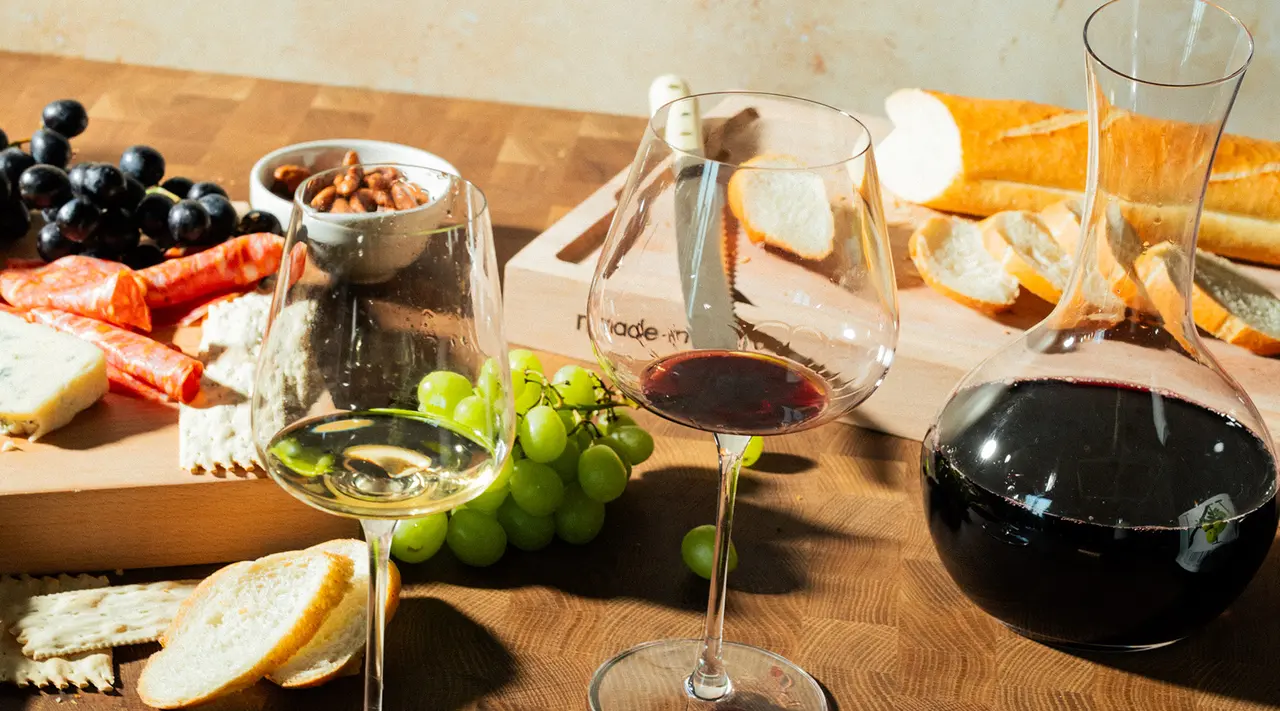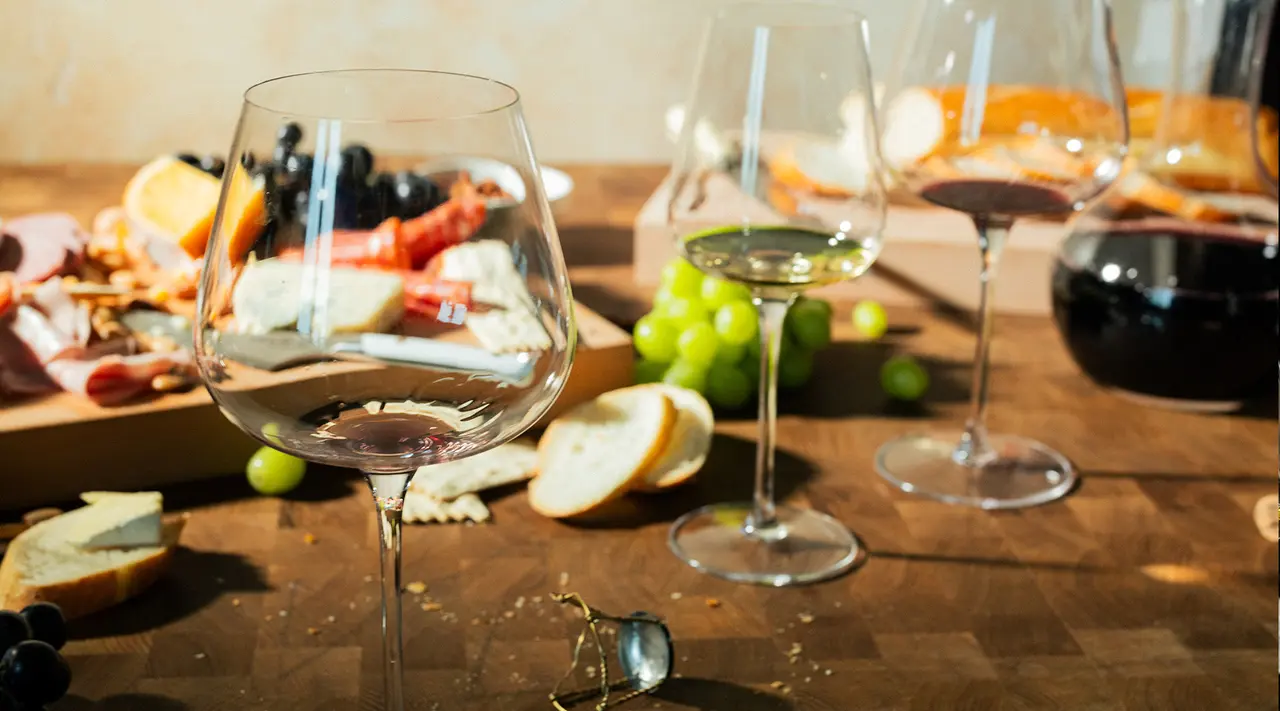Decanting wine isn't what bougie people do, it's what any wine drinker should do—according to an expert.

This may be a hot take: buying (and subsequently using) a decanter does not, in fact, make you guilty of the kind of snotty, white-table cloth bougieness that this very essential tool has unfortunately become synonymous with.
Believe me, I can hear your scoffing through the screen and I used to be just like you. Growing up in a flyover state of the southeastern United States virtually guaranteed that every house I ever walked into didn’t have a decanter on display or even hiding at the back of the pantry. I’m pretty sure I made it to my early twenties before someone even said the word and I knew it had something to do with wine. My first thought was “That’s what bougie people do.” But it’s not. It’s what anyone who drinks wine should do. Here's what you need to know.

Wine and decanters go together like peas and carrots, or maybe Big Macs & Burgundy. They are as vital to your wine game as a cork screw or a wine glass. It is such a basic part of enjoying wine that if “Getting Into Wine” had a starter-pack, a decanter would be in it.
The point of decanting, or even swirling, is to coax aromatic compounds out of a wine by pushing oxygen into the wine. You might have heard it called “letting it breathe” or “opening up” a wine. Most wines benefit from a little aeration, meaning they start to smell and taste even better than they would if you just poured some straight into your wine glass. Decanting also helps any sulfur-based smells or overly alcoholic notes blow off, letting the wine shine through.
Because of this simple science, using a decanter helps you unlock the joys of an exceptional or even just-plain-good bottle of wine.

Luckily, not every bottle needs to be decanted. Some won’t change when decanted and some will just fall apart. There’s a right amount of air to reveal a wine’s full characteristics and a wrong amount of too much air that can completely oxidize and crush a wine.
This is why we recommend tasting your wine before you decant to see how expressive it is. There’s no need to take a massive whiff. Just take slow, gentle sips of air, paying attention to what you smell as you breathe out and in.
If aromas are blasting out of the glass full-throttle, don’t prematurely aerate them all away. But if you don’t smell much, give that decanter a crack at it. There’s more info on becoming a non-snob wine-pro in my book Big Macs & Burgundy, as well.

I like the Made In Decanter because it's kind of like an AP glass (winespeak for “all-purpose” glass, meaning you can use it for red, white, whatever). They’ve created a version that isn’t the widest and isn’t the skinniest you can find on the market, meaning it's a great middle-of-the-road option that will work for just about anything you might want to give a little extra air-love to.
We use cookies to provide a better user experience. By using our site, you agree to our use of cookies. See our Privacy Policy to learn more.